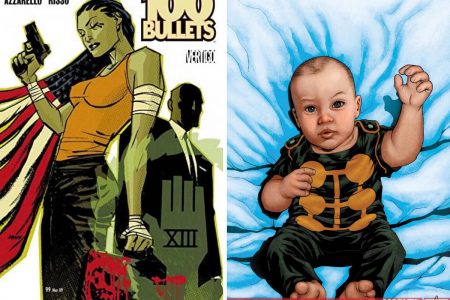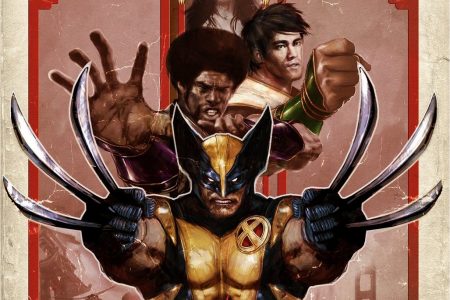By Brian K Vaughan and Niko Henrichon
Even though it is based on a true story, the concept of four lions escaping from Baghdad Zoo during the recent war in Iraq is a strange starting point for a graphic novel, even if it is written by the man who bought us Y: The Last Man, about the after effects of a world in which all but one man is dead, and Ex Machina, the former superhero who is now mayor of New York. What is even more strange is that Pride Of Baghdad is a moving and absorbing tale.
We meet four lions in the zoo: Zill, the male; Safa, an old female with one good eye and half an ear missing; Noor, a young female; and Ali, Noor’s cub. In a short amount of time, Vaughan gives each identifiable characteristics to the lions (Zill is lazy and seeks the quiet life; Noor yearns for freedom; Safa remembers what ‘freedom’ was like and doesn’t mind the captivity), each of which responds differently to the concept of freedom when bombs from planes allows them to escape and their journey of hardship and difficulty.
The book obviously has a tricky balance to find – all the animals talk, in English for that matter, and have a knowledge of life outside of the norm considered for animals. Fortunately, Henrichon’s art (which it took a year for him to do) has enough of a mix of the cartoony and the realistic to be able to convey the world in which the story inhabits. His lush visuals and ability to convey the emotions of the pride (and other animals) really make the story come alive, and there are some glorious double-page spreads (such as all the animals fleeing the zoo or the pride as when exit the main entrance). This book is truly a joy to look at as well as read.
It’s not completely perfect from a storytelling side – Vaughan has all the animals talking in a very vernacular English that occasionally takes you out of the story because it doesn’t feel right for these creatures in Iraq. For example, a turtle says ‘Get the hell away from my Tigris!’, to which Safa responds ‘I’m not a tigress, I’m a lion.’ That only works in English because of the play on words – to have everything so detailed and then allow a pun to appear for no reason seems an odd choice. Not to mention that all animals can understand each other and have a knowledge of the country in which they live and its history (the turtle talks about being hatched during the first war, back when Iraq was an Empire – that’s an odd bit of editorialising from a turtle, isn’t it?), and they all understand the concept of a zoo. The part with the bear, although using part of the Hussein personal history to good use, seems a little odd, even if it is a very exciting and dramatic part of the story. But I’m being picky about a book with talking animals – this is a very good story with an actual point and with something to say, about the nature of freedom and war. Highly recommended.




